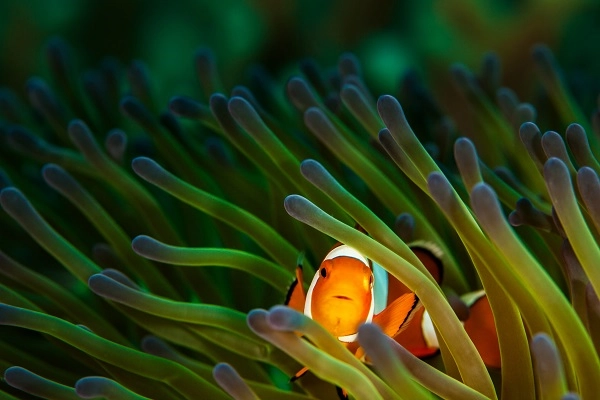Protecting Nemo: Is your sunscreen toxic to sea life?


Years of building awareness about sun damage has taught people to look for sunscreen labels with words like broad-spectrum and SPF. But there may be a new word to look for: reef-safe.
Some beach vacation destinations now ban sunscreen that contains chemicals that can kill corals and harm aquatic life, but it’s still crucial to protect your skin. So how can you protect your skin and the environment?
- Avoid sunscreen with oxybenzone and octinoxate. Scientists have found these chemicals to be responsible for doing the most damage to coral reefs. Look for mineral-based sunscreens that contain titanium dioxide and zinc oxide. They’re generally considered to be less damaging to the environment and less irritating to sensitive skin.
- Look for sunscreen without nanoparticles. Mineral-based sunscreens sometimes leave a white residue, evidence of the physical barrier they create between the sun’s harmful rays and your skin. Companies grind the minerals down to help minimize this effect, but grinding too small creates nanoparticles that can be ingested by corals.
- Don’t use aerosol sunscreens. You may breathe in the fumes and release other chemicals into the environment around you. Many people who use spray sunscreens also don’t use enough because they can’t see how much they are applying.
- Use sunscreen with a sun protection factor of 30 to 50. Above 50 does not provide a statistically significant improvement in protection for UV rays, whereas SPF 50 blocks around 98 percent of UVB rays when used as directed.
- Use the right amount of sunscreen. Experts say that about an ounce is needed to cover the whole body. That’s an entire shot glass! Most people do not use enough sunscreen, so slather it on!
- Reapply sunscreen frequently. Dermatologists recommend reapplication every two hours or 40 minutes if you are in and out of the water or sweating a lot.
- Wear sun-protective clothing. By wearing rashguards and other clothing with ultraviolet protection factor (UPF), you will have less exposed skin needing sunscreen.
While applying sunscreen or covering up may be a hassle, keep in mind that Oregon consistently ranks in the top five states for melanoma diagnoses. UVA rays can cause damage to skin even without burning. Dark skin tones that rarely burn can still develop skin cancer, too.
Want more information about staying safe in the sun? Check out Sunscreen: Your burning questions answered.